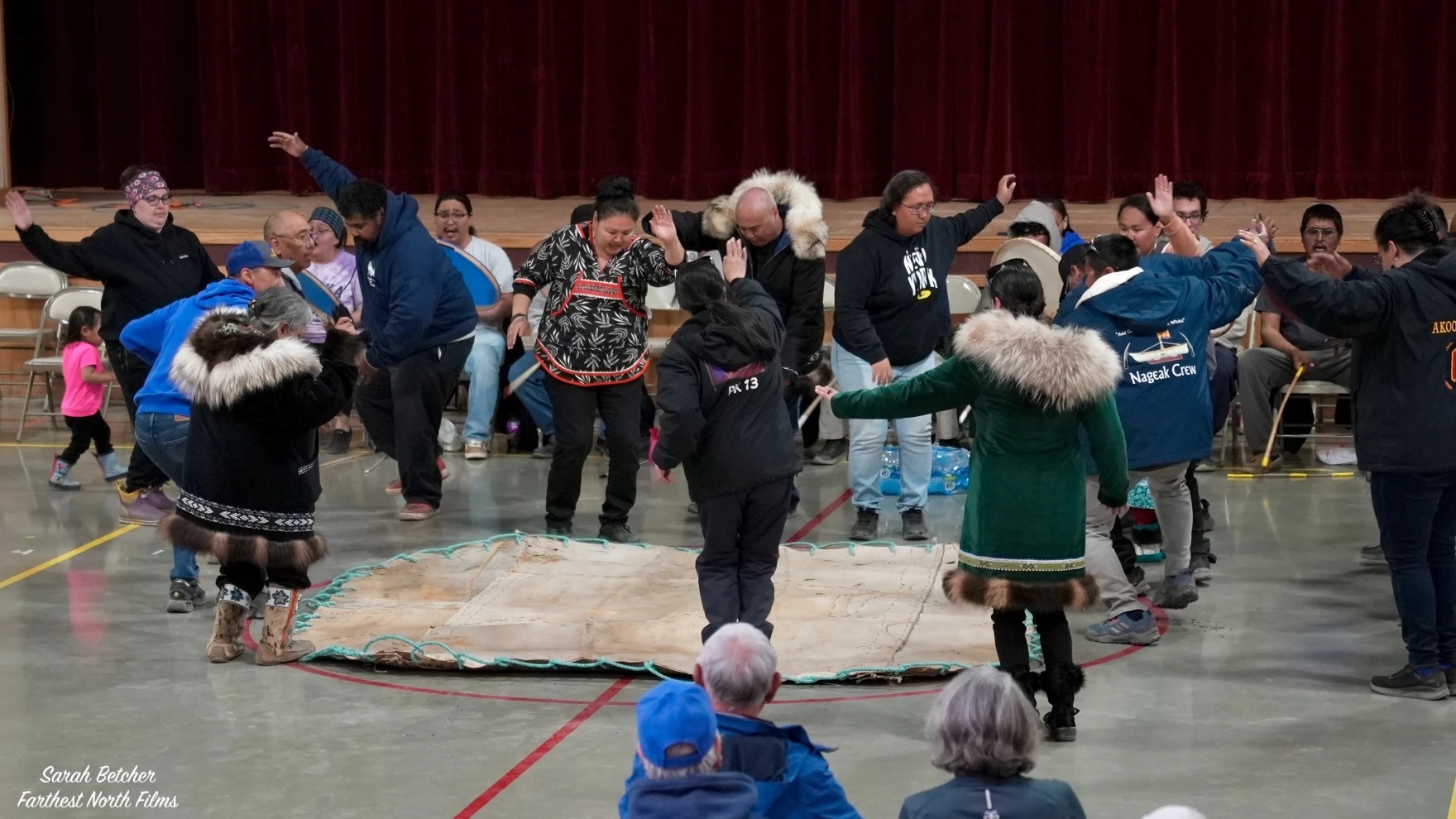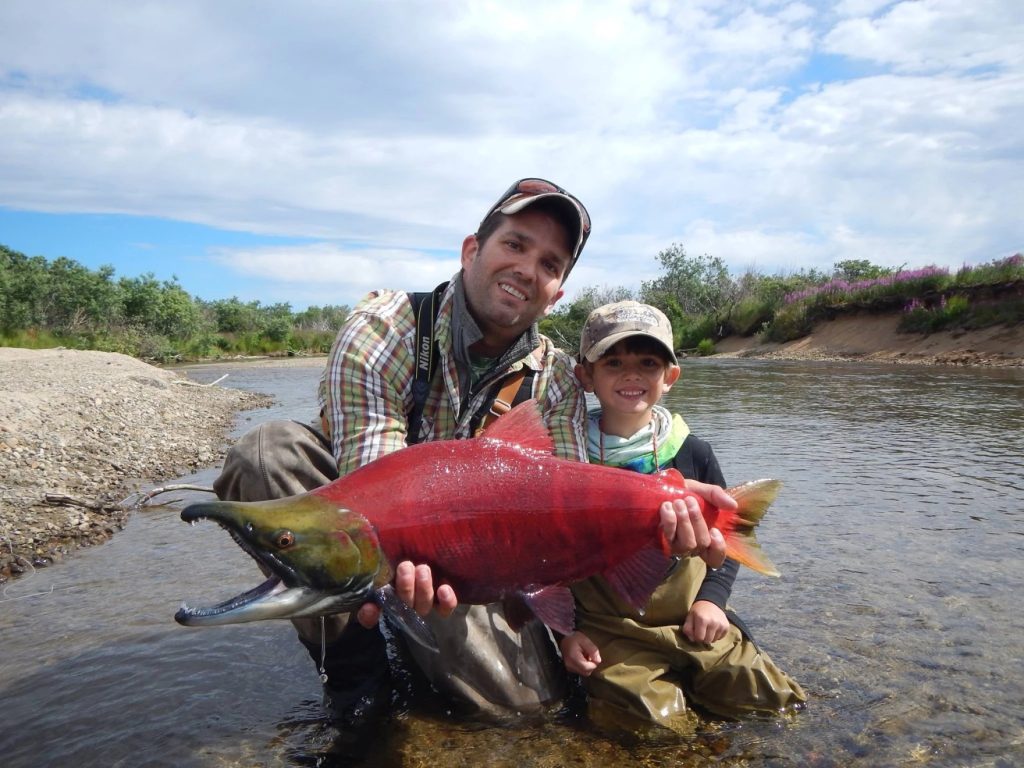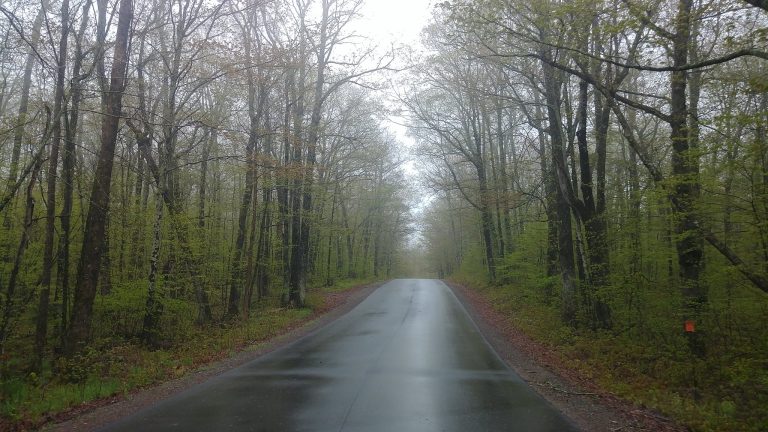Podcast: Play in new window | Download | Embed
The Trump administration may be on the verge of reviving plans for a controversial mine upstream from Alaska’s Bristol Bay.
Alaska Public Media’s Liz Ruskin reports.
The company behind the proposed Pebble Mine says it’s in talks with the Environmental Protection Agency (EPA) and hopes the agency will withdraw its veto of the project.
The open-pit copper and gold mine is widely opposed by area tribes and the Bristol Bay Native Corporation, as well as commercial fishermen.
They say it’s a threat to the bay’s prolific salmon runs that are the basis of the regional economy and vital to subsistence and Alaska Native culture.
Environmental studies found the mine would damage or destroy miles of salmon streams and more than 2,000 acres of wetlands.
Opponents have succeeded in blocking the proposal for decades.
The EPA issued a rare veto of the project in 2023, but a document filed in federal court this month reveals that the EPA is reconsidering that decision.
In his first term, President Donald Trump ran hot and cold on Pebble.
His first EPA administrator let the project move forward, then reversed course a few months later.
Then, in 2020, the U.S. Army Corps of Engineers denied Pebble’s Clean Water Act permit. That came after Donald Trump Jr., a sportfisherman who visited the region, publicly announced his opposition.

Several whaling crews join in a traditional Iñupiaq dance during Nalukataq. (Photo: Sarah Betcher)
The Trump administration’s new budget reconciliation bill is drawing criticism from some for its cuts to social safety net programs.
But residents in one Arctic community say the bill will support their economy, thanks to several carveouts for Alaska, including an increased tax break for whaling captains.
Alaska Desk’s Alena Naiden from our flagship station KNBA has more.
Charles Akłinik Lampe is an Inupiaq whaler, born and raised in Kaktovik, on the North Slope.
His whaling crew hosted a feast in June, celebrating their successful bowhead whale harvest and sharing it with the village.
“It doesn’t only go to the whaling captains or whaling captains’ families. It goes to our entire community.”
Lampe is one of the whaling captains in Alaska’s Arctic who are applauding the Republican megabill that President Trump signed into law on July 4.
The bill has been criticized for extending tax breaks for wealthier Americans and for slashing social safety net programs like Medicaid and food stamps.
U.S. Sen. Lisa Murkowski (R-AK) was a deciding vote in the bill’s passage.
She defended her vote by pointing to delayed work requirements for food stamp recipients in Alaska, and offsets for Medicaid cuts with federal funding.
The final bill also includes a tax deduction increase for subsistence whaling captains from $10,000 to $50,000 for whaling-related expenses.
Lampe says those deductions will provide a big economic relief for 11 whaling communities in Alaska.
He says captains like him annually need to buy fuel, food, whaling bombs, and safety gear for their crews.
“It could be very, very spendy. Having that tax break frees up money to provide help for the rest of the year for not only the whaling captains, but to our family members and stuff too, because we help wherever we can.”
The megabill also seeks to increase resource development across the state and includes new oil lease sales in the National Petroleum Reserve in Alaska and the Arctic National Wildlife Refuge.
Nathan Gordon Jr. is the mayor of Kaktovik, the only community within the refuge.
He says those provisions acknowledge what many North Slope residents have been advocating for: Responsible resource development to support local economy and infrastructure.
“That’s where most of the tax money is going to go is to the new school in Kaktoivik, which is amazing,”
North Slope residents, like Lampe, also say they’re also encouraged by the nearly $25 billion in the bill for the Coast Guard – a federal agency that often assists them with search and rescue operations.

(Courtesy Rep. Sharice Davids)
U.S. Rep. Sharice Davids (Ho-Chunk/D-KS) and several of her colleagues are calling on the Department of Justice (DOJ) to restore the Not Invisible Act Commission Report to the DOJ website, which was removed earlier this year due to an executive order.
Members recently sent a letter to the DOJ which said the report includes critical information on the Missing and Murdered Indigenous Persons crisis, and say its removal erases years of research.
The members say accessible data is essential to addressing the crisis.
They’re asking the DOJ to take steps to immediately restore it.
Get National Native News delivered to your inbox daily. Sign up for our daily newsletter today.



